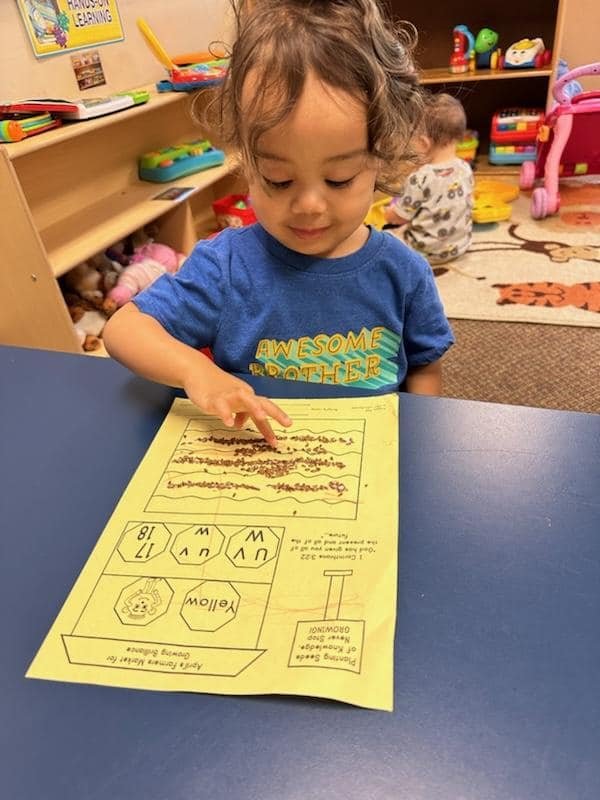Boosting Your Child’s Language Development: Expert Tips and Activities
Language development is an essential aspect of early childhood education. Strong language skills lay the foundation for effective communication, academic success, and social interactions. Supporting your child's language growth involves engaging in activities and practices that promote listening, speaking, and comprehension. Here are expert tips and activities to help boost your child’s language development.
Read Together Daily
One of the simplest and most effective ways to enhance your child’s language development is through reading. Choose books that are age-appropriate and engaging. Reading aloud not only builds vocabulary but also introduces children to new concepts, story structures, and conversational patterns.
Tip: Encourage your child to predict what happens next in the story or ask questions about the characters and events to develop comprehension skills.
Engage in Conversation
Talking with your child throughout the day, even during routine activities, can significantly enhance language skills. Narrate your actions, describe your surroundings, and ask open-ended questions to stimulate conversation and active thinking.
Example: Instead of asking, “Did you have fun at school?” ask, “What was your favorite activity at school today, and why did you enjoy it?”
Incorporate Songs and Rhymes
Songs, nursery rhymes, and chants help children learn new words and patterns. The rhythm and repetition involved in music make it easier for kids to remember words and phrases. Singing together also promotes listening skills and can be a fun bonding experience.
Activity: Create a song or rhyme about daily routines, like getting dressed or cleaning up, to make language learning fun and interactive.
Play Word Games
Games that involve words and language can boost vocabulary and sentence formation skills. Simple games like “I Spy,” word matching, or storytelling games encourage children to think creatively and express themselves verbally.
Activity Suggestion: Play a word association game where each person says a word related to the one before it. For example, “apple” can lead to “tree,” which can lead to “forest.”
Introduce Multiple Languages Early
If your household speaks multiple languages, introduce them early. Research shows that young children can learn and adapt to multiple languages more easily than adults. Doing so not only enhances language skills but also cognitive flexibility.
Tip: Use picture books, songs, and interactive activities in both or all languages spoken at home to build a bilingual or multilingual foundation.
Encourage Pretend Play
Pretend play is a powerful tool for language development. Activities such as playing “store,” “doctor,” or “restaurant” allow children to use vocabulary relevant to specific scenarios. This helps them practice structuring sentences and engaging in dialogues, boosting both expressive and receptive language skills.
Activity: Set up a mini-market at home and have your child act as the shopkeeper while you play the customer. Encourage them to use new vocabulary like “purchase,” “price,” and “change.”
Limit Screen Time and Use It Wisely
While digital tools can be educational, excessive screen time may hinder language development. Choose age-appropriate, interactive apps and shows that encourage speaking and active participation rather than passive watching.
Tip: Watch educational shows with your child and discuss them afterward. Ask questions like, “What did you learn from that?” or “Which part did you like best?”
Model Good Listening Skills
Listening is a vital part of language development. Model active listening by paying full attention when your child is speaking. Acknowledge their ideas, ask follow-up questions, and give them the time they need to express themselves.
Tip: Reflect their sentences back to them with added detail or vocabulary. If they say, “I saw a big dog,” you can reply, “Yes, you saw a huge, fluffy dog that was barking at the park!”
Explore Interactive Language Activities
There are many activities designed to build language skills while having fun. Consider activities like storytelling prompts, word scavenger hunts, or creating simple storybooks together.
Activity: Make a story jar with different prompts written on slips of paper. Each day, have your child draw one and create a story around it. This fosters creativity, logical thinking, and storytelling skills.
Conclusion
Boosting your child’s language development doesn’t require complicated tools or strategies. With a mix of everyday conversation, engaging activities, and thoughtful practices, you can create an enriching environment that supports growth in their communication skills. These expert tips and activities can help your child develop a strong foundation that benefits them for years to come.


